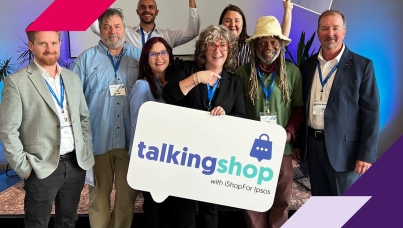Consumer patterns are as confusing as the economy itself
Here’s what we know today from the Ipsos Consumer Tracker:
- Our confidence in buying a new car has increased since we last asked a few months ago, as has our confidence in home improvements and even optional splurges.
- There’s been a slight rise in people who think that gender is a binary since we last asked for What the Future Identity driven by a sizeable rise in Independents and a slight rise in Republicans. Other questions about safety and anonymity and feeling safe to express oneself have changed less in the past year.
Read on for data about: AI, Lent (and related), Spending, Saving and identity
Spending and saving
Why we asked: It’s been about six months since we last asked about people’s reported spending savings patterns and the economy has, well, ebbed and bounced along since then.
What we found: Not much has changed. Signals are still mixed from people as they are in every other way the economy is measured these days. We’re spending more on food and less on experiences. But we also have more people saying they got a raise and are saving more of their income. More say they have postponed medical treatments but fewer say they are postponing big-ticket purchases.
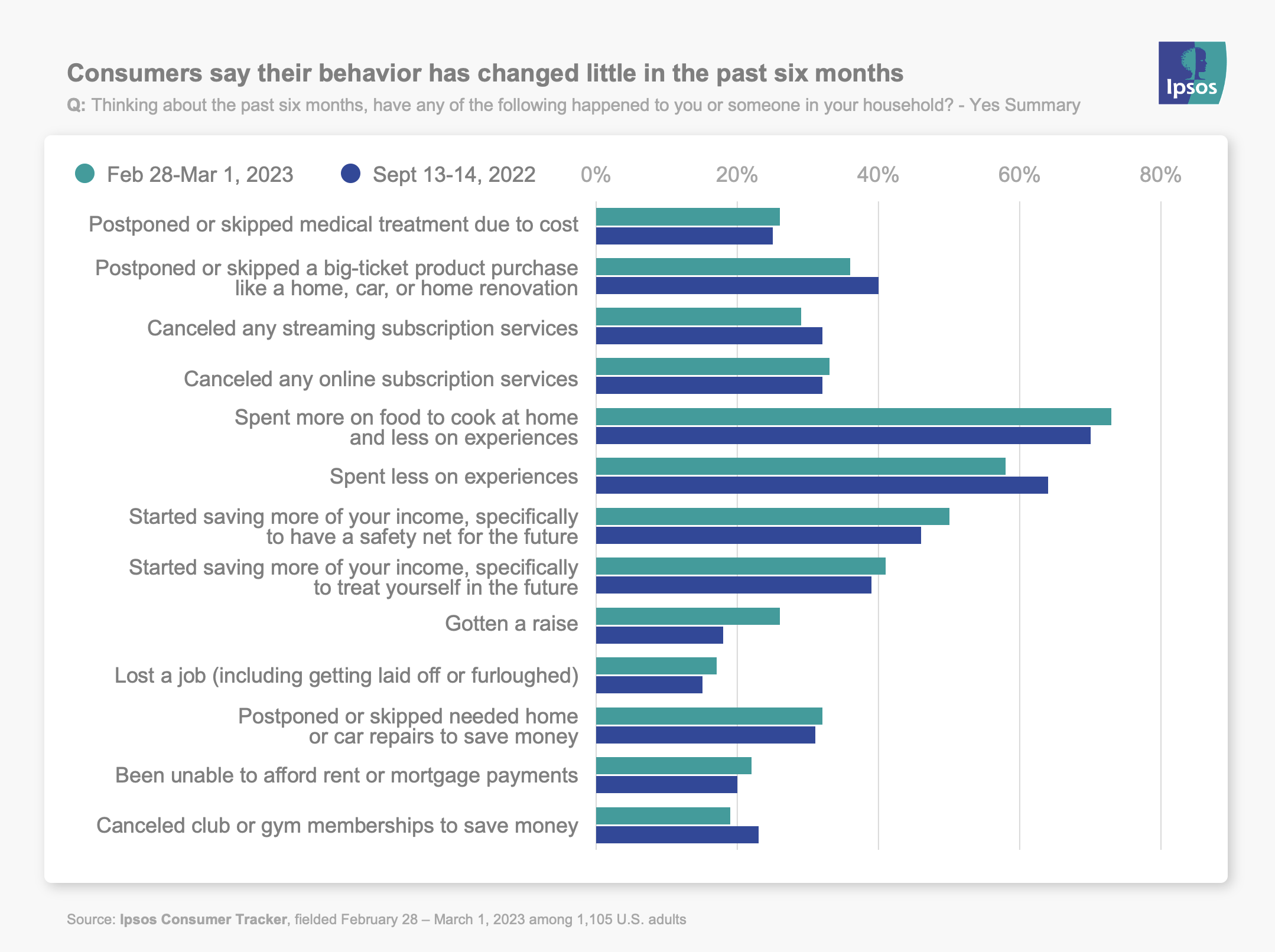
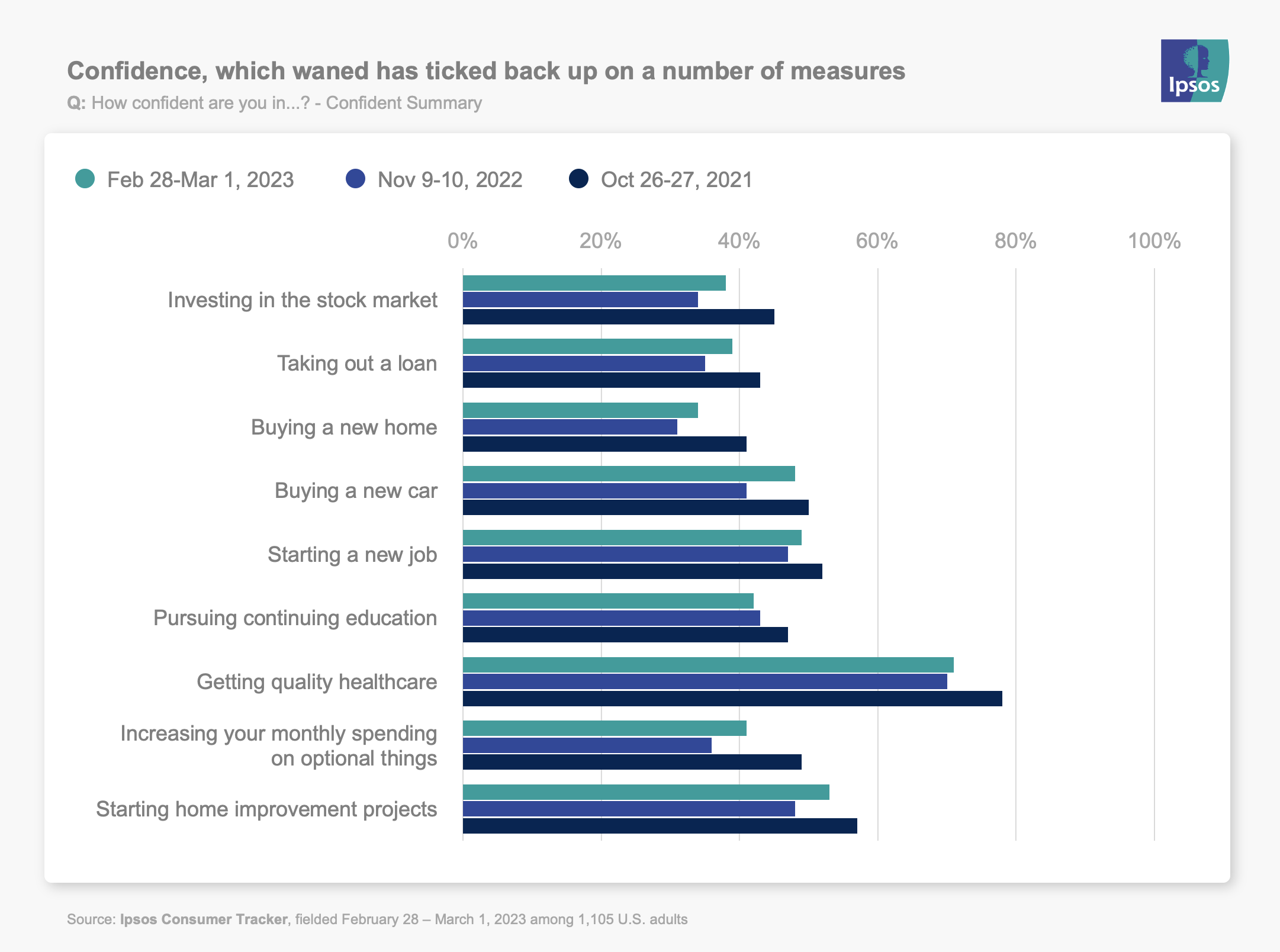
What words would describe AI content?
Why we asked: There have been a few news pieces recently about content producers getting called out for AI-generated content that wasn’t billed as such. But is the content really such a problem for people? This wave we asked about creative content like books and movies. Last wave we asked about marketing and news content in the context of trust and people were three times as likely to say they would lose trust rather than gain trust if they found out it was AI-generated.
What we found: My take is that the transparency is a big factor. I had ChatGPT give me a list of words people might use to describe AI. It, um, gave me a list of very positive traits. So I asked again for some negative ones. We tweaked the list and fielded it and the answers were generally positive. The top three picked were Futuristic, Innovative and Creative. Controversial and not “real art.” Rounded out the top five. But choices like rip-off and boring and soulless were much lower.
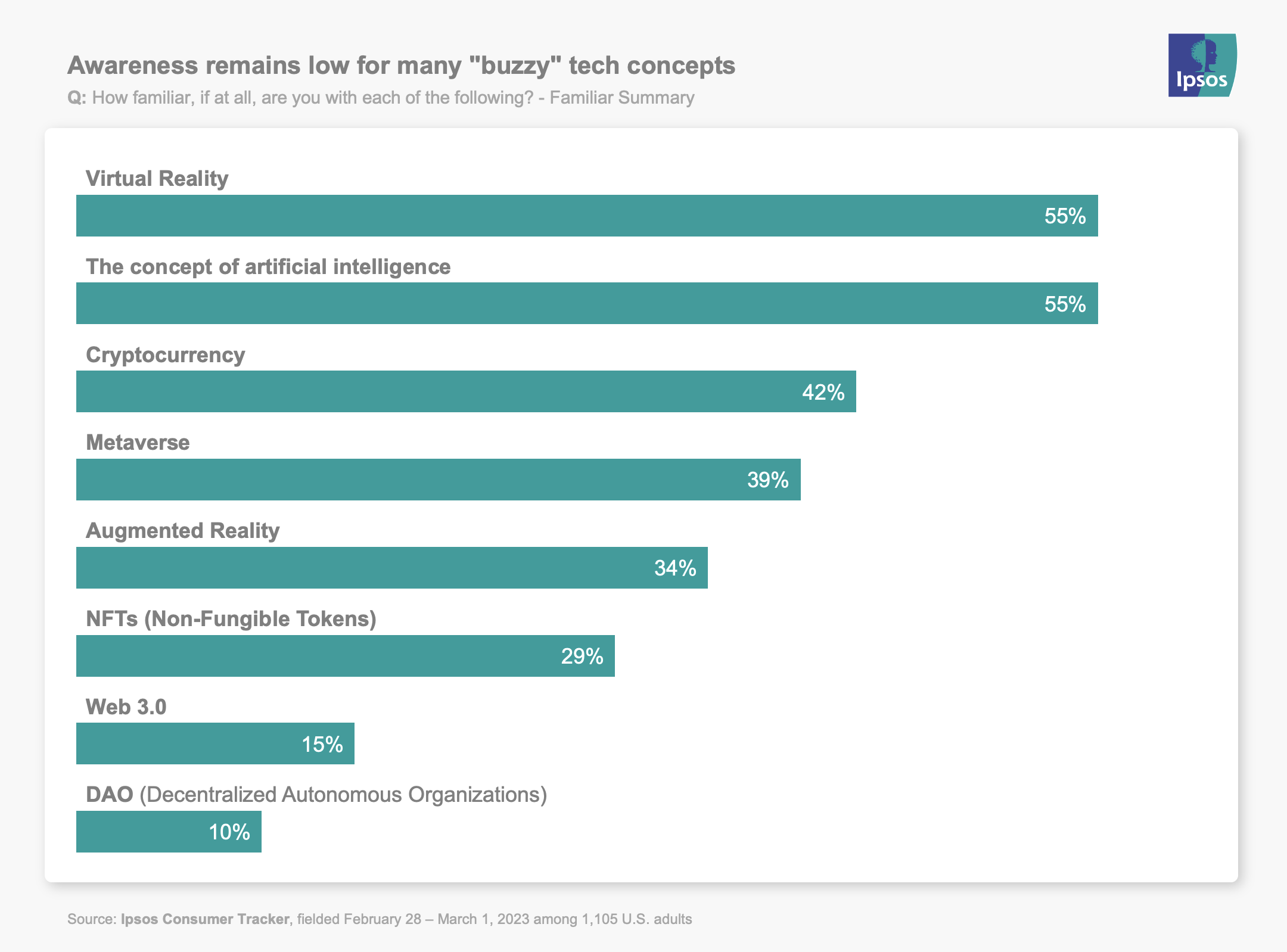
How would you react to AI-generated content?
Why we asked: Last wave we asked about trusting marketing and news content. What about creative content? Would people have a positive or negative reaction to finding out it was AI-created?
What we found: People are split on positive or negative reactions. That evenness is unlike the trust reaction we saw last wave. But as with that question we saw a lot of “neither” in the middle. For those considering AI content, being transparent seems important but beyond that people seem very open to the idea so far. Though we’d still prefer human-generated content, according to last wave.
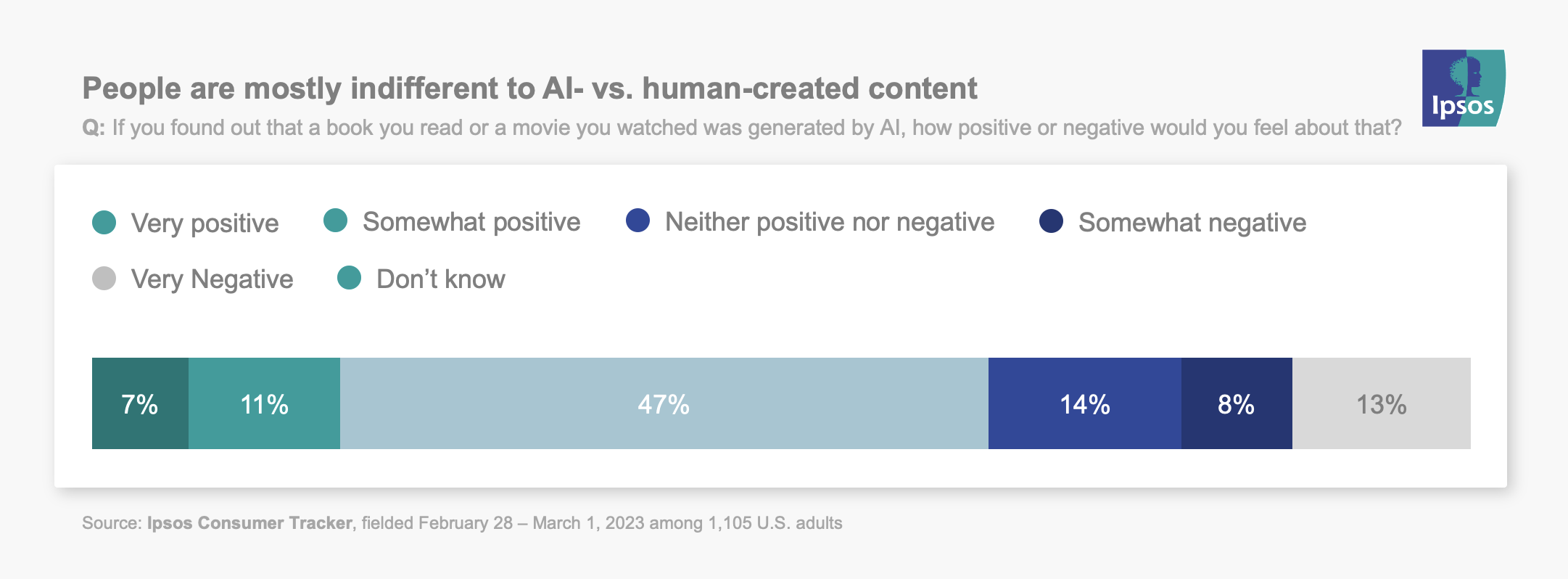
Health wearables don’t seem to be gaining traction
Why we asked: This is a question we’ve fielded a couple of times during the pandemic. The early indications were that wearables and telemedicine were both going to increase in use.
What we found: On a variety of possible uses, we see a pretty steady decline in interest since we started asking about wearable in What the Future Health in 2018. The biggest gain is in the number of people saying that none oof these features is of use to them.
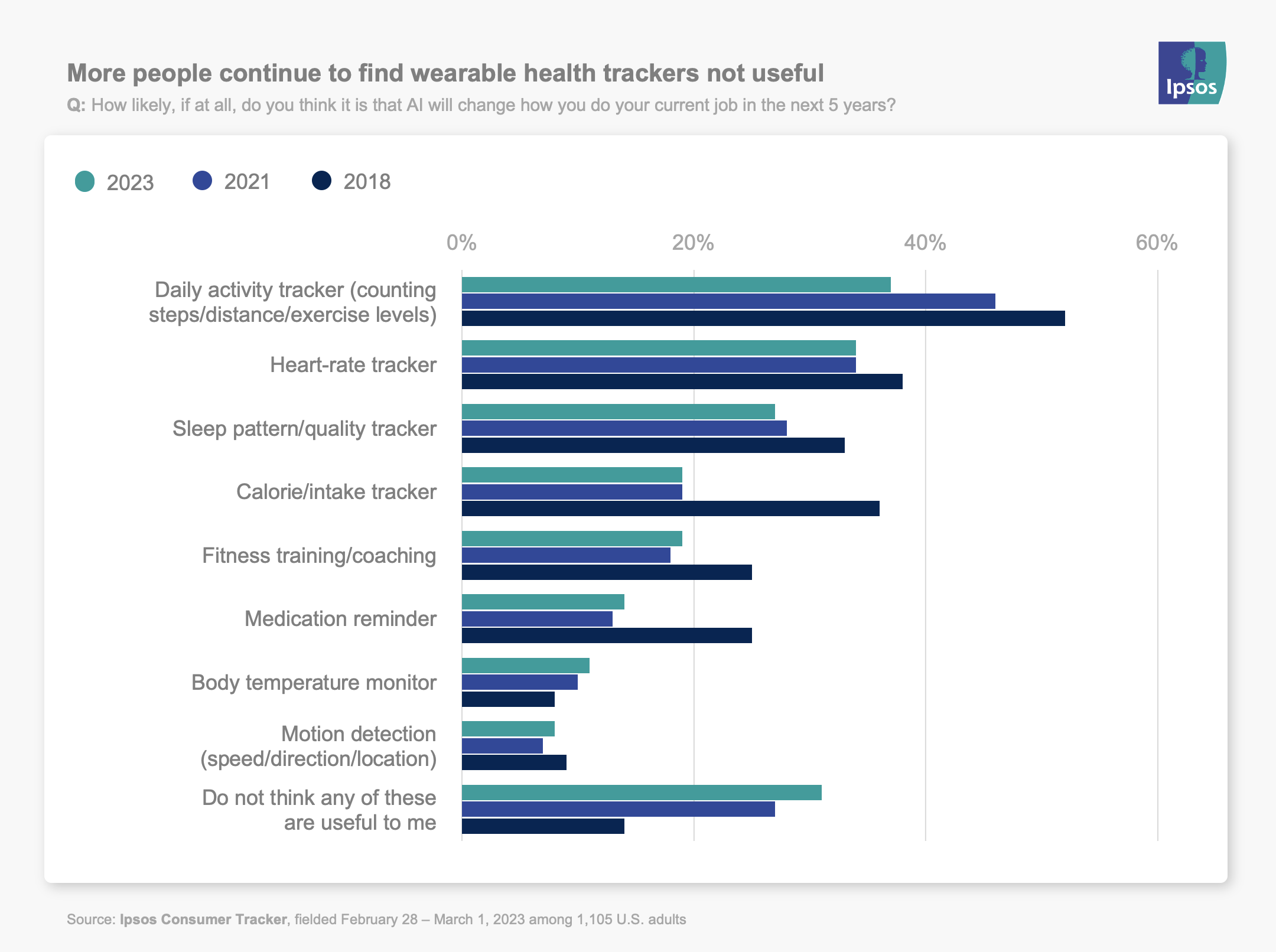
People don’t tend to give up things they like but here’s what they do when they do
Why we asked: Dry January has passed. Lent is coming up. Tis the season to give things up. Or is it?
What we found: While there tends to be a lot of attention given to movements like Dry January, few take part in them. Only 11% say they give up drinking post-holidays. More say they give up things for non-religious reasons or “just because” (22%) than for religious reasons (14%). Of people who do give up things from time to time, drinking alcohol tops the list followed by soda (pop, for you Midwesterners) and sweets and then social media and smoking. People are more willing to give up social media than sex and equally unwilling to give up meat as sex. We asked an open-end too and came up with a few interesting answers like dating apps, “low vibe energy” and “negative thoughts” the oddly specific “foods containing titanium dioxide” and someone who either misunderstood the question or has a sense of humor who said that they give up “Lent.”
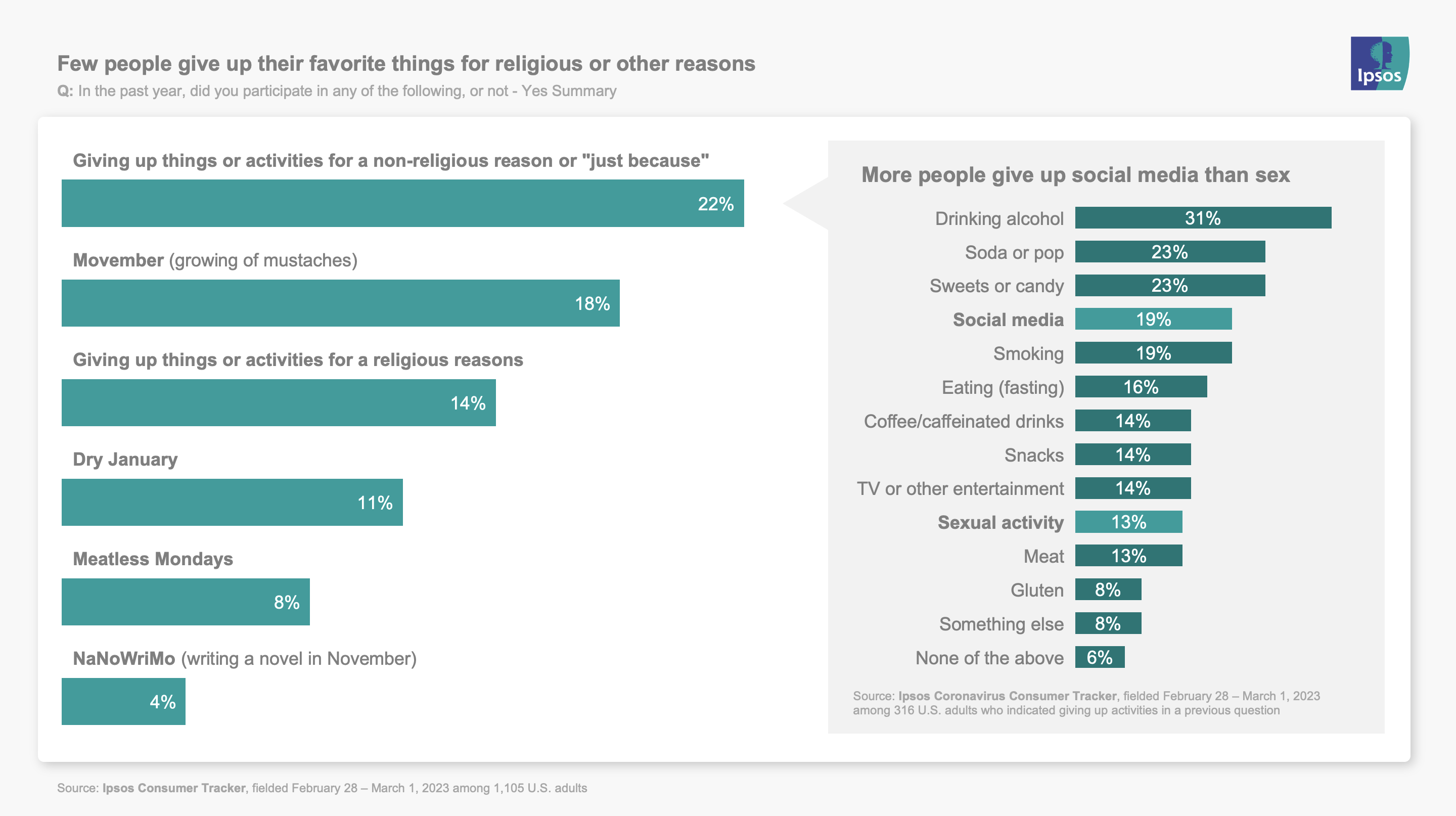
Signals
Here’s what we’re reading this week that has us thinking about the future.
- NBA offers new fan experiences. (via NBA)
- Christians must enter the AI Arms Race! via (via Gab)
- China has a dataset problem with AI (via ArsTechnica)
- You can now talk freely about your former employers (via Vice)
For complete toplines for all waves, please see the full data and methodology.

